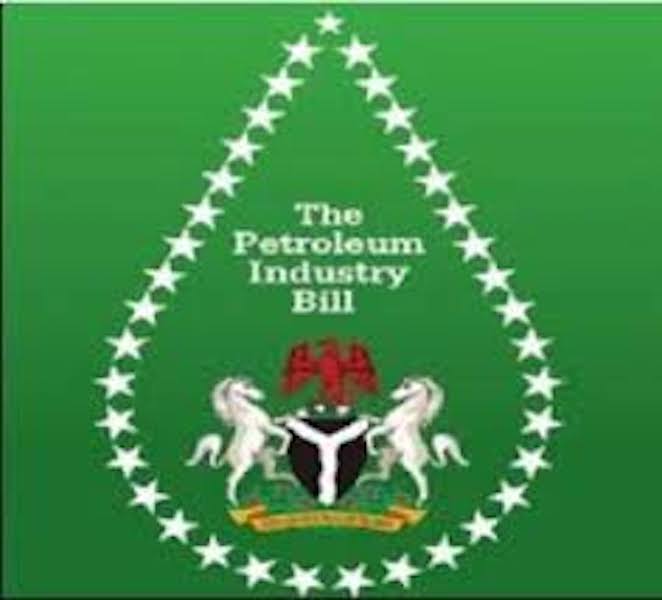 By Udeme Akpan
By Udeme Akpan
As legislators continue deliberations on the much-delayed Petroleum Industry Bill, PIB, stakeholders have urged the National Assembly to pass it in a form that would attract maximum investment into Nigeria’s oil and gas industry.
In an interview with Energy Vanguard, Executive Director, Spaces for Change, Victoria Ibezim-Ohaeri, stated: “Nigeria needs to pass the PIB as soon as possible to ensure the country gets maximum benefits from its petroleum resources. Crude oil dominates Nigeria’s economy, accounting for around 80 per cent of export earnings. Nigeria has the largest oil and gas reserves in sub-Saharan Africa with an estimated 37 billion barrels of oil and 188 trillion cubic feet of gas.”
Another expert, who preferred not to be named, said: “Since 2008, there has been an effort in Nigeria to introduce a new Petroleum Industry Bill to replace the existing collection of 16 laws and regulations. The Joint PIB was submitted in March 2020 and updated in September 2020, and the Federal Government of Nigeria and the National Assembly aim to pass the bill in the first quarter of 2021.
“The PIB covers four key areas — Governance, Administration, Host Communities, and Fiscals. While the Petroleum Industry Governance focuses on the Restructuring of industry governance framework (e.g. Commercialization of NNPC), the Administration focuses on Administration/regulation of the industry (e.g. stipulates license/lease requirements, terms, administration). The Petroleum Host Communities Development aspect talks about the establishment and funding of Trusts for oil and gas Host Communities, while the Petroleum Fiscal framework focuses on introduction of new fiscal terms governing the industry (e.g. taxes, royalties, allowances).
“The PIB is very important, especially as the oil and gas industry is the main pillar of Nigeria’s economy. The Industry contributed 65 per cent of all revenues for the government of Nigeria, and 88 per cent of Nigeria’s foreign exchange, as of 2018. Several enabled projects created job opportunities for over 600,000 Nigerians in the last decade, improving the conditions of many people. The industry has shaped Nigeria into the largest oil producer in Africa and the 5th largest LNG producer in the world.”
READ ALSO: Ministry finalises work on Petroleum Industry Bill
Continuing, he said: “In the past few years, many nations, including African economies, have become oil and gas producers, thus competing to attract capital to their nations. This means that Nigeria, previously among the few producers, has to compete with others in attracting maximum capital for investment. Thus in crafting its legislation, adequate provisions have to be made to compete and attract investment into Nigeria’s oil and gas industry.”
“The world, Africa in particular, is seeing new countries, previously unheard of in this sector, now emerging and be increasingly more effective to attract capital away from Nigeria. Many countries, depending on oil and gas resources are also not remaining still but aggressively pursuing competitive reforms to see their own resources are developed.”
He added: “Consequently, the PIB should seek to keep total government take (i.e. tax, royalty, and NNPC’s share of deep-water profit oil) at globally-competitive rates. It should also seek to reduce the cost-of-doing-business in Nigeria respectively.
“This is attributable to high security costs, significant administrative costs associated with overlapping government department oversight and duplicity of demands, approval delays, and the inability to allow Industry to optimise. Additionally, the industry has been increasingly burdened by a plethora of fees, taxes, and levies, which amount to 10 per cent cost increases. A PIB which drives down the cost-of-doing business alone would increase the pool of value available to both Industry and government, such that even at lower government takes, government would realize higher incomes attributable to cutting waste and increasing growth by attracting capital.
“The current 2020 draft PIB does not improve the investment environment for new project FIDs to be taken. As it is currently, government’s take on Nigeria’s pre-final investment decision Joint Venture (JV) oil projects are among the highest in the world. Also, the PIB terms for Deepwater could lead to Nigeria foregoing over 30 per cent of its production potential in 2030. Moreover, multiple issues along the gas value chain need to be addressed to maximize gas potential (e.g. competitive gas terms, resolution of gas investment/revenue currency-mismatch, free market prices, infrastructure availability and adherence to contractual obligations).”
However, Prof. Omowumi Iledare, the Ghana National Petroleum Corporation, GNPC, Professorial Chair in Oil and Gas Economics and Management, Institute for Oil and Gas Studies, University of Cape Coast, Ghana, said it is in the best interest of Nigeria to utilise the PIB as a major instrument towards attracting investors, especially now that the Coronavirus pandemic, low oil prices and other challenges have impacted negatively on the nation’s capacity to embark on capital projects and programmes.
Vanguard News Nigeria
The post Pass PIB to attract investment, others — Stakeholders appeared first on Vanguard News.





















0 Comments
Advertise your business here at cheap rate and get large audience to your market. Call/Msg Teemikemedia: 07060733664 to get started.